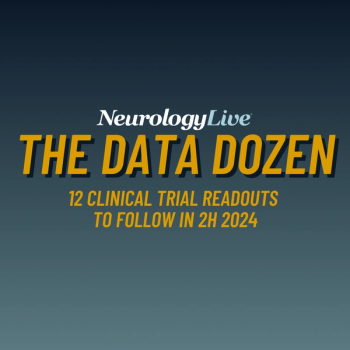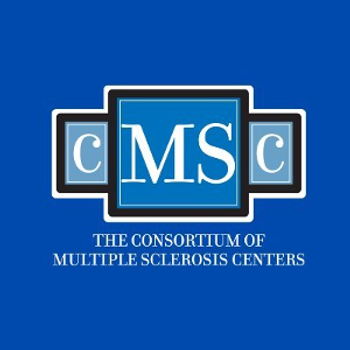
The use of a blood test significantly improved diagnostic accuracy compared with standard clinical evaluations for Alzheimer disease, especially in primary and secondary care settings.

Isabella Ciccone, Content Associate, NeurologyLive®, has been with the team since September 2022. Follow her on X @iciccone7 or email her at [email protected]

The use of a blood test significantly improved diagnostic accuracy compared with standard clinical evaluations for Alzheimer disease, especially in primary and secondary care settings.

The vice president of scientific engagement at Alzheimer's Association talked about recent studies that highlight the progress made in blood biomarker tests for diagnosis, the impact of air pollution on brain health, and promising treatments for Alzheimer disease. [WATCH TIME: 8 minutes]

A study recently presented at AAIC 2024 showed that higher consumption of processed red meat significantly increased the risk of dementia and cognitive decline among adults in the United States.

The director of the Brain Health Observatory at the University of Southern California discussed the potential impact of Alzheimer disease blood tests on reducing clinic wait times and improving the diagnostic process in primary care.

The assistant professor at Duke University School of Nursing talked about a project aimed at developing a music-based mobile app to improve sleep for individuals with dementia and their caregivers. [WATCH TIME: 5 minutes]

The professor of neuroscience at Imperial College London talked about results from a study assessing a glucagon-like peptide-1 analogue, liraglutide, in patients with Alzheimer disease. [WATCH TIME: 5 minutes]

A duo of experts talked about the association of long-term exposure to fine particulate matter from wildfires and the increased risk of dementia among older adults. [WATCH TIME: 7 minutes]

The director of the Brain Health Observatory at the University of Southern California talked about integrating blood tests into primary care to better triage patients with Alzheimer disease, reduce unnecessary referrals, and shorten appointment wait times. [WATCH TIME: 7 minutes]

The application was supported by positive data of KYV-101 in patients with stiff-person syndrome treated in Germany under a named-patient treatment option.

Michael Soileau, MD, FAAN, talked about a panel of specialists who discussed the evolution and multidisciplinary treatment of Parkinson disease, emphasizing patient-centered care and advanced therapeutic options.

Tiziana Life Sciences’ intranasal foralumab has shown potential in treating nonactive secondary progressive multiple sclerosis through innovative immune modulation.

Anvi Gadani, MD, assistant clinical professor of medicine at Medstar Georgetown University Hospital, discussed surgical and device-guided therapies for managing advanced Parkinson disease and essential tremor.

Pending positive results from an early-stage trial, a mid-stage study evaluating MyoPAXon’s effect on other targeted muscles and muscle function will be initiated.

The director of movement disorders at the Banner Sun Health Research Institute talked about recent, promising advancements for diagnosing atypical Parkinsonian disorders and the questions that remain.

The professor of neurology at Stony Brook Medicine talked about the promising potential in ongoing studies assessing BTK inhibitors as treatment for primary progressive multiple sclerosis. [WATCH TIME: 3 minutes]

The assistant professor at Hunter College talked about the approach of localization to prevent misdiagnoses of multiple sclerosis and ensure patients receive appropriate treatment. [WATCH TIME: 3 minutes]

Patricia Clark, CNP, a nurse practitioner at the Cleveland Clinic, talked about a specialized program for hospitalized patients with Parkinson disease that aligns hospital protocols with home medication regimens to improve care.

The neuroradiologist at Mayo Clinic discussed the categorization of biomarkers for Alzheimer disease, focusing on core biomarkers specific to the disease and those reflecting related pathologies. [WATCH TIME: 8 minutes]

A recent study showed significant retinal damage in patients with double-antibody seronegative neuromyelitis optica spectrum disorders following optic neuritis.

A duo of experts from Mayo Clinic discussed how recent developments in clinical criteria for diagnosing limbic-predominant amnestic neurodegenerative syndrome allow for more accurate differentiation from Alzheimer disease. [WATCH TIME: 9 minutes]

Lomecel-B is made from living cells called medicinal signaling cells that are isolated from fresh bone marrow tissue that has been donated by adult donors aged 18 to 45.

The neuroradiologist at Mayo Clinic talked about revised guidelines for diagnosing and staging Alzheimer disease, which reflect recent scientific advancements and integrate cutting-edge biomarkers and diagnostic tools. [WATCH TIME: 6 minutes]

Take a look at some of the most-anticipated clinical trials with expected data readouts in the second half of 2024 that researchers and clinicians in neurology should keep an eye out on.

A recent study identified limitations in the Expanded Disability Status Score scale's ability to capture full disability spectrum in neuromyelitis optica spectrum disorder and myelin oligodendrocyte glycoprotein-antibody-associated disease.

The director of the Weill Cornell Women’s Brain Initiative discussed emerging research that highlight the significant impact of sex hormones on women's brain health, and how it influences conditions like Alzheimer disease. [WATCH TIME: 8 minutes]

The neurosurgeon in the department of neurology at Allegheny Health Network talked about the increasing prevalence of chronic pain as the population ages and the treatment options available to patients to provide relief. [WATCH TIME: 5 minutes]

A recent study revealed that pediatric patients with Duchenne and Becker muscular dystrophy have low rates of corticosteroid use.

The assistant professor at Hunter College talked about how to effectively diagnose and treat multiple sclerosis through localization and active listening of the patient's history and symptoms. [WATCH TIME: 7 minutes]

A summary of key components of the current MAGNIMS-CMSC-NAIMS consensus recommendations led by experts on the use of MRI in multiple sclerosis for busy clinicians.

As part of our monthly clinician spotlight, NeurologyLive® highlighted multiple sclerosis expert Marisa McGinley, DO, the staff neurologist at Cleveland Clinic’s Mellen Center for MS.